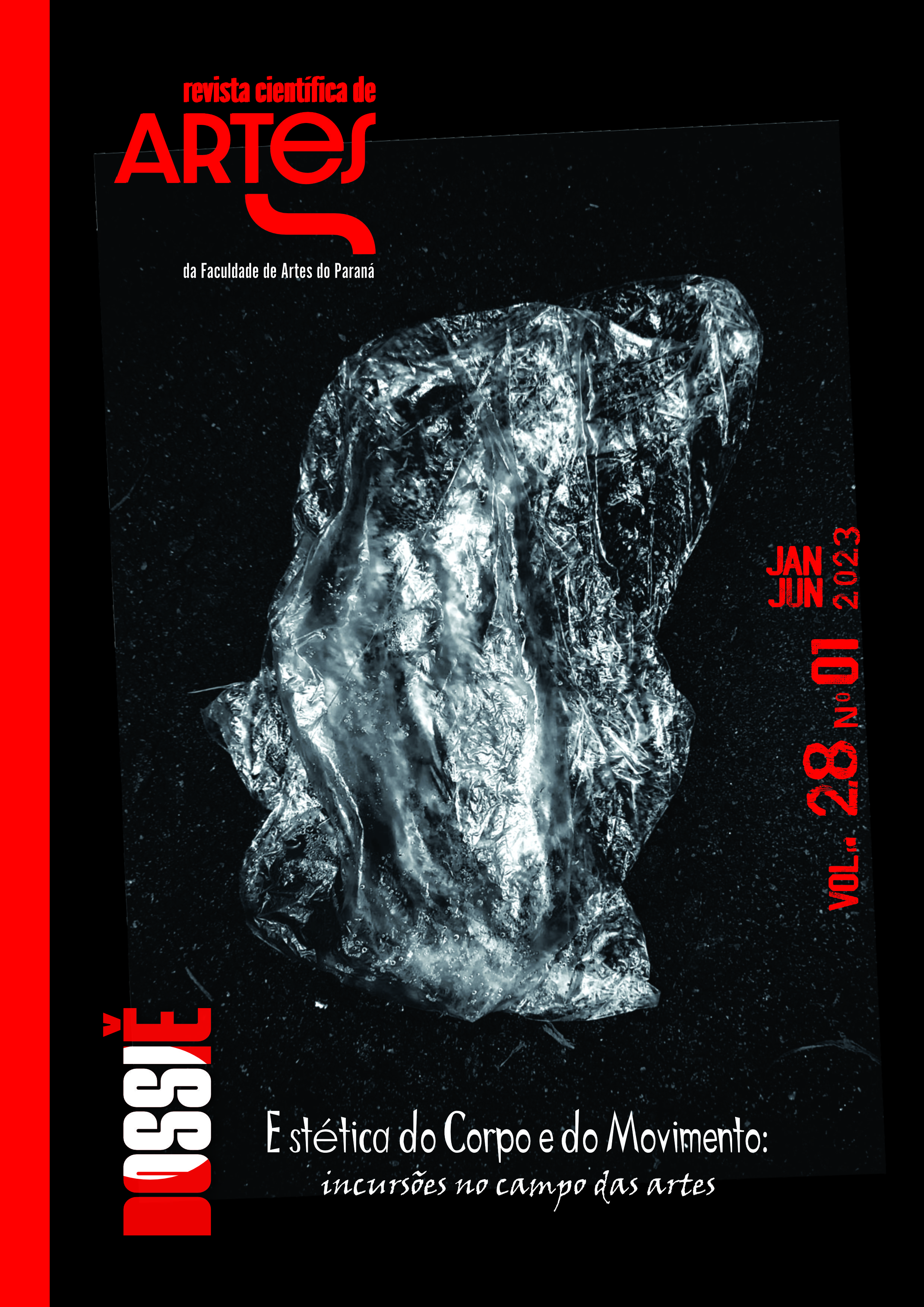CORPOS-TERRITÓRIOS EM MUSEUS – ESPAÇO DE CRIAÇÃO/EDUCAÇÃO
DOI:
https://doi.org/10.33871/19805071.2023.28.1.7338Palavras-chave:
Corpo-território, Museus, Arte/Educação, NarrativasResumo
O artigo apresenta parte das narrativas desenvolvidas na pesquisa de mestrado que buscou, através da contribuição de quatro ex-estagiários do setor educativo do Museu de Arte Moderna Aloisio Magalhães – Mamam, compreender como a Arte/Educação em um espaço museal, atravessada por experiências e memórias, constrói saberes. A discussão do estudo também propôs observar como se define o museu e as dinâmicas internas de construção de saberes; como ocorrem os processos (auto)reflexivos e de conhecimentos no museu, a partir das experiências dos/as sujeitos/as; e refletir como o setor educativo, em seu planejamento, dialogou com as experiências dos/as sujeitos/as. A partir da noção de corpo-território, de Eduardo Oliveira Miranda (2020), neste artigo nos provocamos a pensar como memórias, histórias, identidades, saberes se transformam em processos estéticos/artísticos, e como os museus dialogam com os corpos que ocupam este espaço e essas produções, entendendo que esses corpos produtores de arte são potência educadora.
Downloads
Referências
BARBOSA, Ana Mae. A arte-educação precisa dos artistas. In: Arte-educação: conflitos e acertos. São Paulo: Editora Max Limonad Ltda., 1985.
CHAGAS, Mário de Souza. Museus de ciência: assim é, se lhes parece. Caderno do Museu da Vida. O formal e o não formal na dimensão educativa dos museus - 2001/2002, Rio de Janeiro: Museu da Vida e Museu de Astronomia e Ciências Afins, 2002, pp. 48-56.
CHAGAS, Mário de Souza. Museus e patrimônios: por uma poética e uma política decolonial. Revista do Patrimônio Histórico e Artístico Nacional, n.35, p. 121-137, 2017. Disponível em: http://portal.iphan.gov.br/uploads/publicacao/revpat_35.pdf
DEWEY, John. Arte como experiência. São Paulo: Martins Fontes, 2010.
HALL, Stuart. Cultura e representação. Rio de Janeiro: Ed. PUC-Rio: Apicuri, 2016.
LARROSA, Jorge. Tecnologias do eu e educação, IN: T. T. SILVA (org.). O sujeito da educação: Estudos Foucaultianos, Petrópolis: Vozes, 2008.
MIRANDA, Eduardo Oliveira. Corpo-território & educação decolonial: proposições afro-brasileiras na invenção da docência. Salvador: EDUFBA, 2020. Disponível em: http://proex.uefs.br/arquivos/File/EBOOKcorpoterritorioeducacaodecolonialrepositorio. pdf
PEDROSA, Mário. Crescimento e criação. In: ARANTES, Otília (ed.). Mário Pedrosa: forma e percepção estética. São Paulo: Edusp, 1996.
TOLENTINO, A. B. Museologia social: apontamentos históricos e conceiturais. Cadernos de Sociomuseologia. Ed v.52 n.8, 2016. Disponível em: https://doi.org/10.36572/csm.2016.vol52.02
VIEIRA, Nathália Teodósio. Caminhar entre pontes – Museus e Arte/Educação: Transpassar em Experiências. Orientadora: Ana Paula Abrahamian de Souza. 2022. 112 f. Dissertação (Mestrado em Educação, Culturas e Identidades) – Universidade Federal Rural de Pernambuco, Recife, 2022.
Downloads
Publicado
Como Citar
Edição
Seção
Licença
Os autores detém os direitos autorais, ao licenciar sua produção na RevistaCientífica/FAP, que está licenciada sob uma licença Creative Commons. Ao enviar o artigo, e mediante o aceite, o autor cede seus direitos autorais para a publicação na referida revista.
Os leitores podem transferir, imprimir e utilizar os artigos publicados na revista, desde que haja sempre menção explícita ao(s) autor (es) e à Revista Científica/FAP não sendo permitida qualquer alteração no trabalho original. Ao submeter um artigo à Revista Científica/FAP e após seu aceite para publicação os autores permitem, sem remuneração, passar os seguintes direitos à Revista: os direitos de primeira edição e a autorização para que a equipe editorial repasse, conforme seu julgamento, esse artigo e seus metadados aos serviços de indexação e referência.


